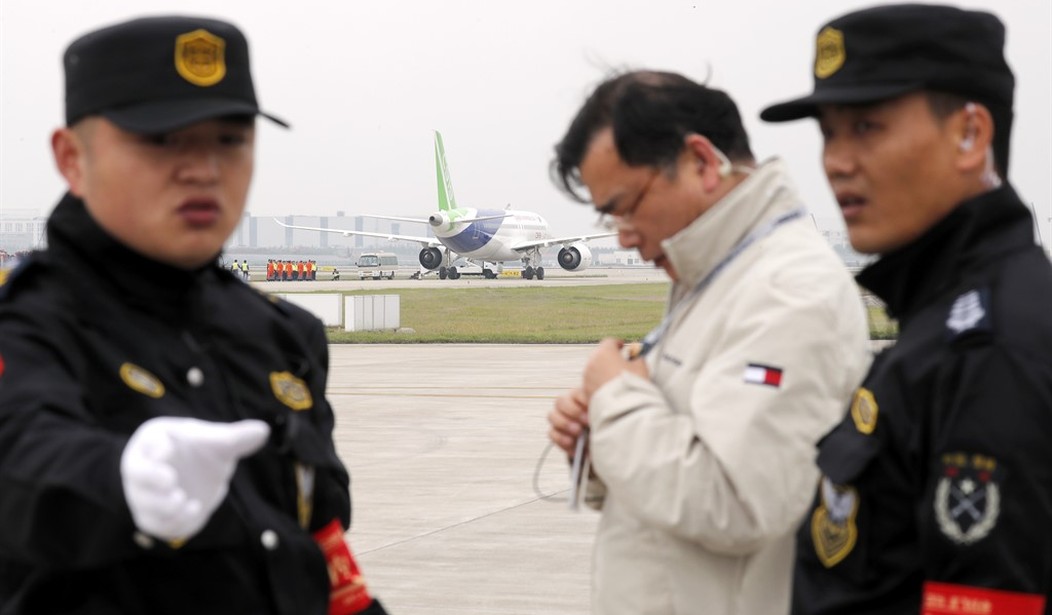The multinational corporate state that has hijacked the U.S. government appears to have pivoted rhetorically to designate China as America’s new top geopolitical enemy, replacing predecessors like transnational Islamic terrorism, Russia, etc.
The question I wish to pose here is: now that China appears to be the United States’ top geopolitical foe, what do we make of the CEOs of multinational corporations who sold America’s manufacturing base down the proverbial river to China in the pursuit of cheap labor?
While we’re at it, what about all the government actors who opened up the so-called “free trade” (a euphemism for multinational corporate rule) with China beginning in the 1970s that precipitated the giant sucking sound that Ross Perot infamously warned about? Perot was talking about jobs sent south of the border to Mexico, but the principle remains:
China didn’t magically appear on the world stage out of nowhere. It was very much actively facilitated in its rise to power by the West, for reasons that are not entirely clear.
Related: The Sino-Forming of the Global South
The groundwork for the future “Chinese century” we’re all living in began in 1972 with Richard Nixon’s trip to the Middle Kingdom, as explained via the Bill of Rights Institute (emphases added):
In June 1971, Nixon stunned the world when he announced he would go to China to meet with Mao. He equally shocked conservative anti-communists, who saw the meeting as a betrayal of America’s Taiwanese ally, with criticism coming particularly from William F. Buckley Jr.’s magazine National Review. On February 21, 1972, Nixon was greeted in Beijing by Zhou Enlai and met with Mao for several hours, discussing the pathway to normalized relations. Then he toured the country and met with prominent Chinese leaders. Final talks at Shanghai produced an agreement to facilitate the normalization of diplomatic relations between the two powers, known as the Shanghai Communiqué.”
Later, in 2001, China, sponsored by the United States, joined the globalist World Trade Organization, further integrating itself into the global liberal economic order and facilitating its rise to power, via the Economic Policy Institute (emphasis added):
Since China entered the World Trade Organization in 2001, the massive growth of trade between China and the United States has had a dramatic and negative effect on U.S. workers and the domestic economy. Specifically, a growing U.S. goods trade deficit with China has the United States piling up foreign debt, losing export capacity, and losing jobs, especially in the vital but under-siege manufacturing sector. Growth in the U.S. goods trade deficit with China between 2001 and 2013 eliminated or displaced 3.2 million U.S. jobs, 2.4 million (three-fourths) of which were in manufacturing.
China then leveraged its new manufacturing base to strengthen itself militarily relative to American power, presumably in preparation for an eventual showdown with the United States, the reigning world hegemon.
Via Center for Strategic & International Studies:
The U.S. defense industrial base also lacks adequate surge capacity for a major war… These problems are particularly concerning since the rate at which China has been acquiring high-end weapons systems and equipment is five to six times faster than the United States, according to some U.S. government estimates…
To deter a potential conflict with China, the United States must act quickly to resolve key challenges in its industrial base.
Bringing China into the liberal fold and then allowing America’s industrial base to be exported there were policy decisions made by politicians — very poor decisions, assuming the politicians’ actual goal was to maintain U.S. economic prowess and keep geopolitical threats contained.
It may have made good business sense for the corporate executives who offshored all of America’s manufacturing capabilities and technologies to be exploited by Chinese state-funded competitors. But it certainly wasn’t the patriotic thing to do.










Join the conversation as a VIP Member